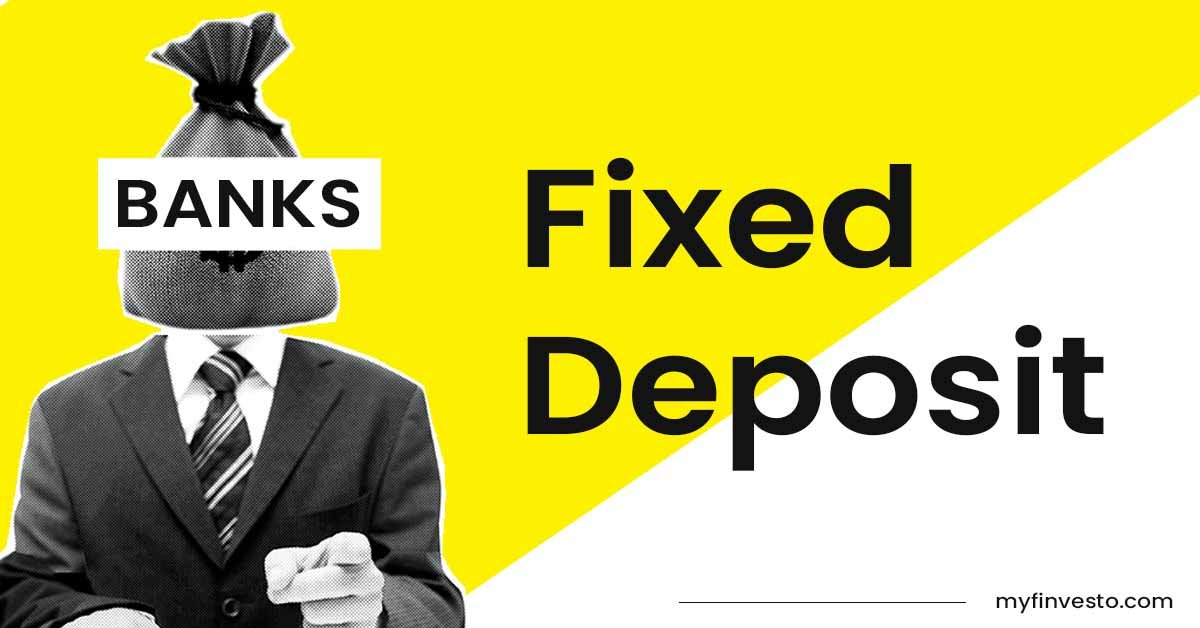Introduction
Investing your money wisely is crucial for financial stability and growth. One popular investment option is Fixed Deposits (FD), which offers several benefits.
In this blog, we will discuss why investing in FD is a wise choice and explore alternative investment options as well.
Consistent Returns
FDs provide consistent returns, making them a preferred choice for many investors. Let’s consider an example to understand this better. Suppose you have one lakh rupees, and the average interest rate offered by banks is 5%. In this case, your total amount after one year will be one lakh five thousand rupees. The interest amount of five thousand rupees is an additional benefit for you.
However, it is important to note that the interest income is taxable. If your other income falls under the 20% tax bracket, you will have to pay 20% tax on the interest amount. In the second scenario, if your other income is taxed at 10% and the interest amount is 40,000 or more, you will have to pay 10% tax on the interest earned.
It is important to consider taxation while calculating the final returns from FDs. This helps in determining the actual benefit and deciding if FDs are the right investment choice for you.
Inflation and Fixed Deposit Returns
Inflation is another factor that impacts the value of money over time. Inflation refers to the increase in prices of goods and services in the market. Let’s understand this with an example. Suppose you buy a T-shirt worth Rs.100 today. If the inflation rate is 6%, the same t-shirt will cost Rs.106 next year.
Now, let’s apply the concept of inflation to FD returns. If we consider a 6% inflation rate, the total amount after one year will be one lakh six thousand rupees. However, we need to subtract the inflation amount from the FD return. In this case, the FD return of one lakh five thousand rupees minus one lakh six thousand rupees results in a loss of one thousand rupees. This means that the value of your money has decreased by 1% due to inflation.
Considering the impact of inflation, it is important to evaluate FD returns in real terms. If the returns are not able to beat inflation, then the actual growth of your investment may be negative. This is why it is crucial to explore alternative investment options that offer better returns and can help you grow your money.
Alternative Investment Options
If FDs do not meet your investment goals or fail to provide attractive returns, you can consider the following alternatives:
- Digital Gold: Investing in digital gold is a popular option. It allows you to invest in gold without physically owning it. The value of digital gold fluctuates with market rates, offering potential growth for your investment.
- Mutual Funds: Mutual funds pool money from multiple investors and invest in a diversified portfolio of stocks, bonds, and other securities. This offers you the opportunity to invest in a variety of assets and potentially earn higher returns.
- Stock Market: Investing in the stock market provides an opportunity to invest in individual stocks of companies. It can offer higher returns but also carries a higher risk. It is advisable to research and analyze stocks before investing.
- Bonds and Debentures: Bonds and debentures are fixed-income securities that provide regular interest payments and return the principal amount at maturity. These are relatively safer investment options.
Exploring these alternatives can help you diversify your portfolio and potentially achieve better returns compared to FDs.
Conclusion
Investing in FDs can be a wise choice due to their consistent returns. However, it is important to consider factors like taxation and inflation while evaluating the actual growth of your investment. If FDs do not meet your investment goals, exploring alternative options like digital gold, mutual funds, stock market, bonds, and debentures can provide higher returns and help you achieve your financial goals. Make sure to research and understand the risks associated with each investment option before making any decisions.
Thank you for reading!
